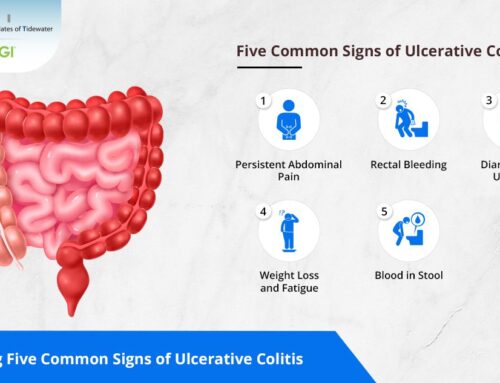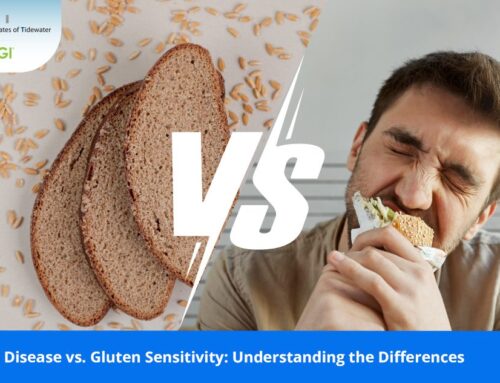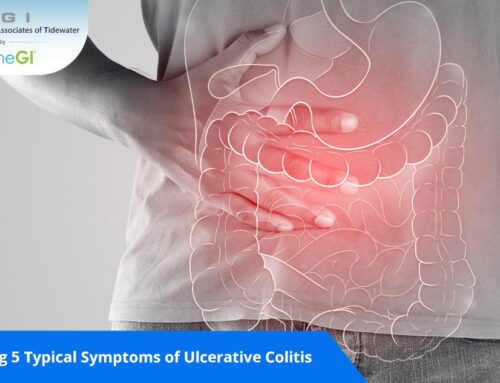Gastroesophageal reflux disease (GERD) is a common yet often overlooked condition that affects millions of people worldwide. It’s characterized by a persistent backward flow of stomach acid into the esophagus, causing discomfort and potentially leading to more serious complications if left untreated. With a comprehensive understanding of its symptoms, causes, and diagnosis, individuals can seek appropriate gastroesophageal reflux disease treatments and manage the condition effectively.
Symptoms of Gastroesophageal Reflux Disease
GERD has a wide range of symptoms. They include:
- Heartburn
- Burning sensation in the chest or throat
- Regurgitation
- Difficulty swallowing
- Chronic cough
- Disrupted sleep due to nighttime heartburn
It’s important to note that these symptoms can vary in frequency and severity, making it necessary for those experiencing persistent discomfort to consult with a gastroenterology specialist.
Causes of Gastroesophageal Reflux Disease
The primary cause of GERD is the weakening or abnormal functioning of the lower esophageal sphincter (LES), a ring of muscle at the base of the esophagus. The LES functions as a valve, keeping stomach contents from flowing back into the esophagus. However, certain factors can lead to the onset of GERD. The factors include:
- Obesity
- Pregnancy
- Hiatal hernia
- Connective tissue disorders such as scleroderma
- Smoking
- Certain foods and drinks such as caffeine, alcohol, and spicy or fatty foods may also contribute to GERD symptoms
Diagnosis of Gastroesophageal Reflux Disease
A gastroenterologist, a specialist in digestive system disorders, plays a vital role in diagnosing GERD. The diagnostic process typically begins with a detailed medical history and physical examination. The gastroenterologist may ask about the frequency and severity of symptoms, any triggering factors, and the effectiveness of any over-the-counter medications used.
If GERD is suspected, a variety of tests to confirm the diagnosis and assess the severity of the condition may be ordered. These tests may include:
- Esophageal pH monitoring examination to measure the acidity in the esophagus
- Endoscopy, where a flexible tube with a light and camera is used to examine the esophagus and stomach
- X-ray of the upper digestive system.
- Manometry test to measure the rhythm of muscle contractions in the esophagus.
After interpreting the results of these tests, the gastroenterologist can diagnose GERD and determine the appropriate course of treatment.
Potential Complications of Untreated GERD
If left untreated, GERD can lead to a variety of serious health complications. One of the most common complications is esophagitis, an inflammation of the esophagus that can cause pain, difficulties in swallowing and bleeding.
Long-term GERD can also result in Barrett’s esophagus, a condition where the normal cells lining the esophagus are replaced by a different type of cell. This can increase the risk of developing esophageal cancer, although this is rare.
Another potential complication is the development of esophageal stricture, where the esophagus narrows due to damage from stomach acid, leading to difficulties in swallowing. Lastly, untreated GERD can also contribute to respiratory problems like asthma, pneumonia, bronchitis, and chronic cough.
It is crucial for anyone experiencing persistent symptoms of GERD to seek medical attention to prevent such complications.
Gastroesophageal Reflux Disease Treatments
Treatment strategies for GERD typically involve lifestyle modifications, medications, or in severe cases, surgery. Lifestyle changes can significantly reduce symptoms. These include:
- Maintaining a healthy weight
- Quitting smoking
- Avoiding trigger foods and drinks
- Avoid lying down immediately after meals
- Taking over-the-counter and prescription medications can reduce or block acid production, providing relief from discomfort.
In severe, unresponsive cases, surgical intervention may be necessary.
Expert gastroenterology services, such as those in Virginia Beach with Gastroenterology Associates of Tidewater, offer comprehensive care in diagnosing and managing GERD. Their board-certified specialists are adept at identifying individual needs and devising treatment plans tailored to each patient’s unique situation.
Understanding gastroesophageal reflux disease treatments, its symptoms, and its causes is the first step toward managing this condition. If you or a loved one are experiencing symptoms of GERD, don’t hesitate to seek professional medical advice. With the right guidance, GERD can be managed effectively and improve the quality of life.
For more information or to schedule a consultation, contact Gastroenterology Associates of Tidewater at (757) 547-0798.






